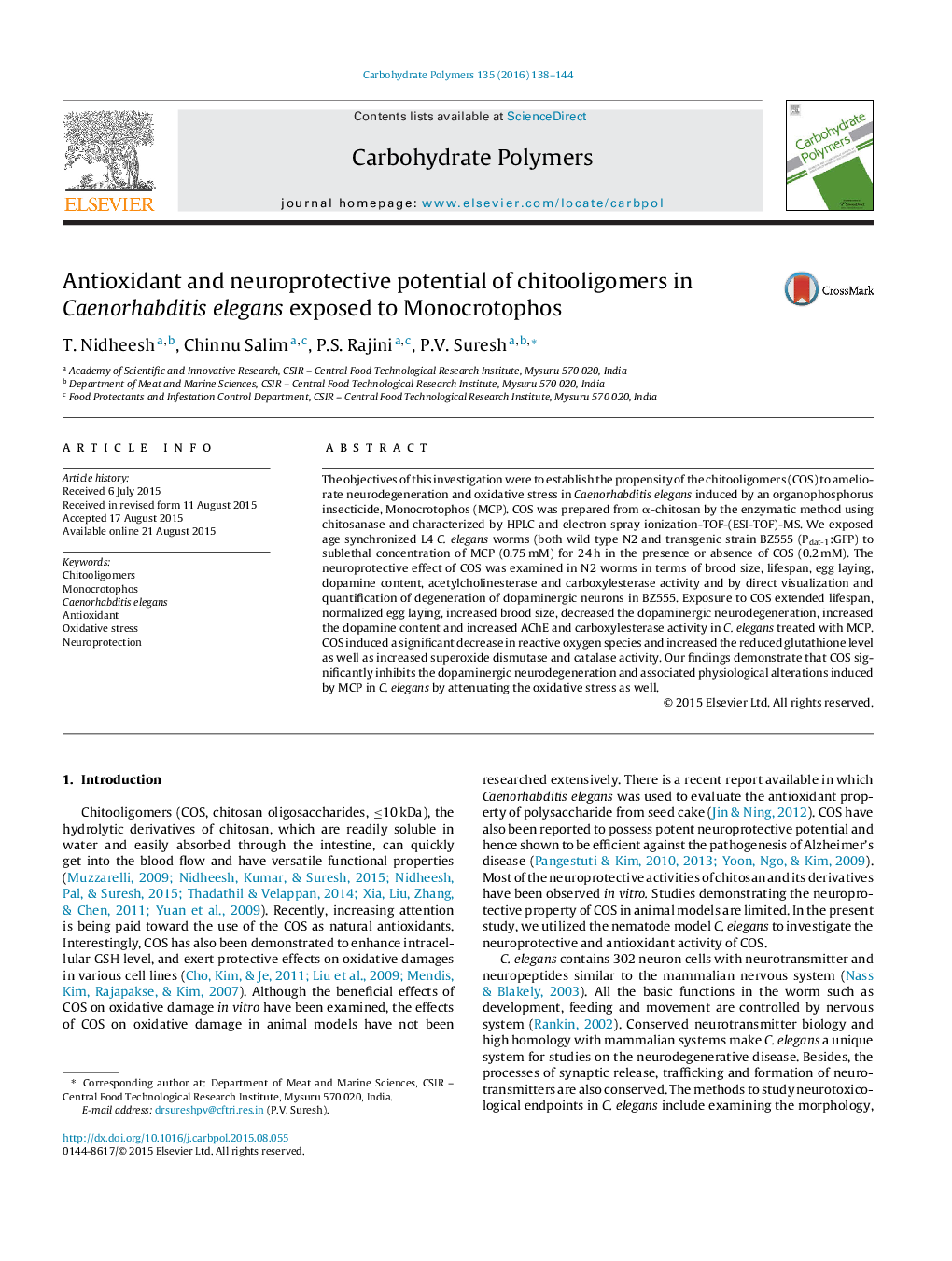| Article ID | Journal | Published Year | Pages | File Type |
|---|---|---|---|---|
| 1383554 | Carbohydrate Polymers | 2016 | 7 Pages |
•We examined the in vivo neuroprotective effect of COS in C. elegans.•Chitooligomers (COS) was enzymatically prepared from shrimp α-chitosan.•Neurotoxicity and oxidative stress was induced in C. elegans by Monocrotophos (MCP).•Neuroprotective and antioxidant effects of COS were established against MCP.
The objectives of this investigation were to establish the propensity of the chitooligomers (COS) to ameliorate neurodegeneration and oxidative stress in Caenorhabditis elegans induced by an organophosphorus insecticide, Monocrotophos (MCP). COS was prepared from α-chitosan by the enzymatic method using chitosanase and characterized by HPLC and electron spray ionization-TOF-(ESI-TOF)-MS. We exposed age synchronized L4 C. elegans worms (both wild type N2 and transgenic strain BZ555 (Pdat-1:GFP) to sublethal concentration of MCP (0.75 mM) for 24 h in the presence or absence of COS (0.2 mM). The neuroprotective effect of COS was examined in N2 worms in terms of brood size, lifespan, egg laying, dopamine content, acetylcholinesterase and carboxylesterase activity and by direct visualization and quantification of degeneration of dopaminergic neurons in BZ555. Exposure to COS extended lifespan, normalized egg laying, increased brood size, decreased the dopaminergic neurodegeneration, increased the dopamine content and increased AChE and carboxylesterase activity in C. elegans treated with MCP. COS induced a significant decrease in reactive oxygen species and increased the reduced glutathione level as well as increased superoxide dismutase and catalase activity. Our findings demonstrate that COS significantly inhibits the dopaminergic neurodegeneration and associated physiological alterations induced by MCP in C. elegans by attenuating the oxidative stress as well.
